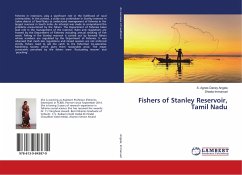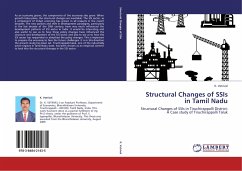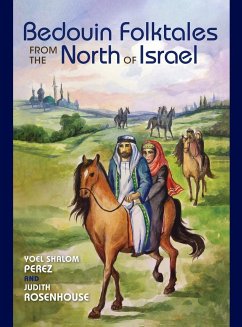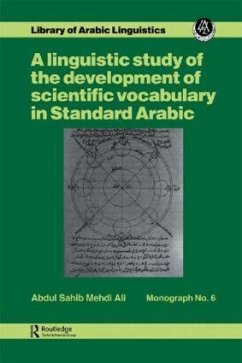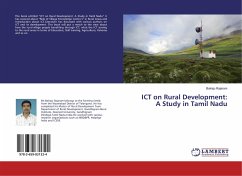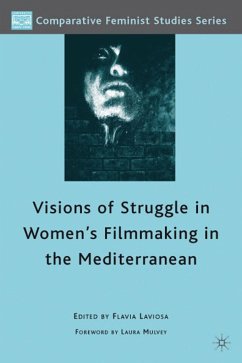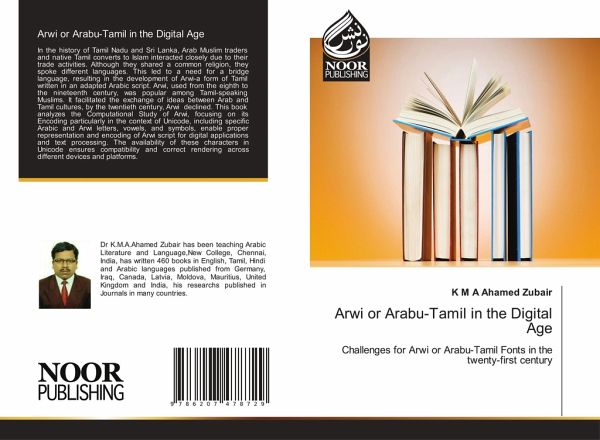
Arwi or Arabu-Tamil in the Digital Age
Challenges for Arwi or Arabu-Tamil Fonts in the twenty-first century
Versandkostenfrei!
Versandfertig in 6-10 Tagen
17,99 €
inkl. MwSt.

PAYBACK Punkte
9 °P sammeln!
In the history of Tamil Nadu and Sri Lanka, Arab Muslim traders and native Tamil converts to Islam interacted closely due to their trade activities. Although they shared a common religion, they spoke different languages. This led to a need for a bridge language, resulting in the development of Arwi-a form of Tamil written in an adapted Arabic script. Arwi, used from the eighth to the nineteenth century, was popular among Tamil-speaking Muslims. It facilitated the exchange of ideas between Arab and Tamil cultures, by the twentieth century, Arwi declined. This book analyzes the Computational Stu...
In the history of Tamil Nadu and Sri Lanka, Arab Muslim traders and native Tamil converts to Islam interacted closely due to their trade activities. Although they shared a common religion, they spoke different languages. This led to a need for a bridge language, resulting in the development of Arwi-a form of Tamil written in an adapted Arabic script. Arwi, used from the eighth to the nineteenth century, was popular among Tamil-speaking Muslims. It facilitated the exchange of ideas between Arab and Tamil cultures, by the twentieth century, Arwi declined. This book analyzes the Computational Study of Arwi, focusing on its Encoding particularly in the context of Unicode, including specific Arabic and Arwi letters, vowels, and symbols, enable proper representation and encoding of Arwi script for digital applications and text processing. The availability of these characters in Unicode ensures compatibility and correct rendering across different devices and platforms.








